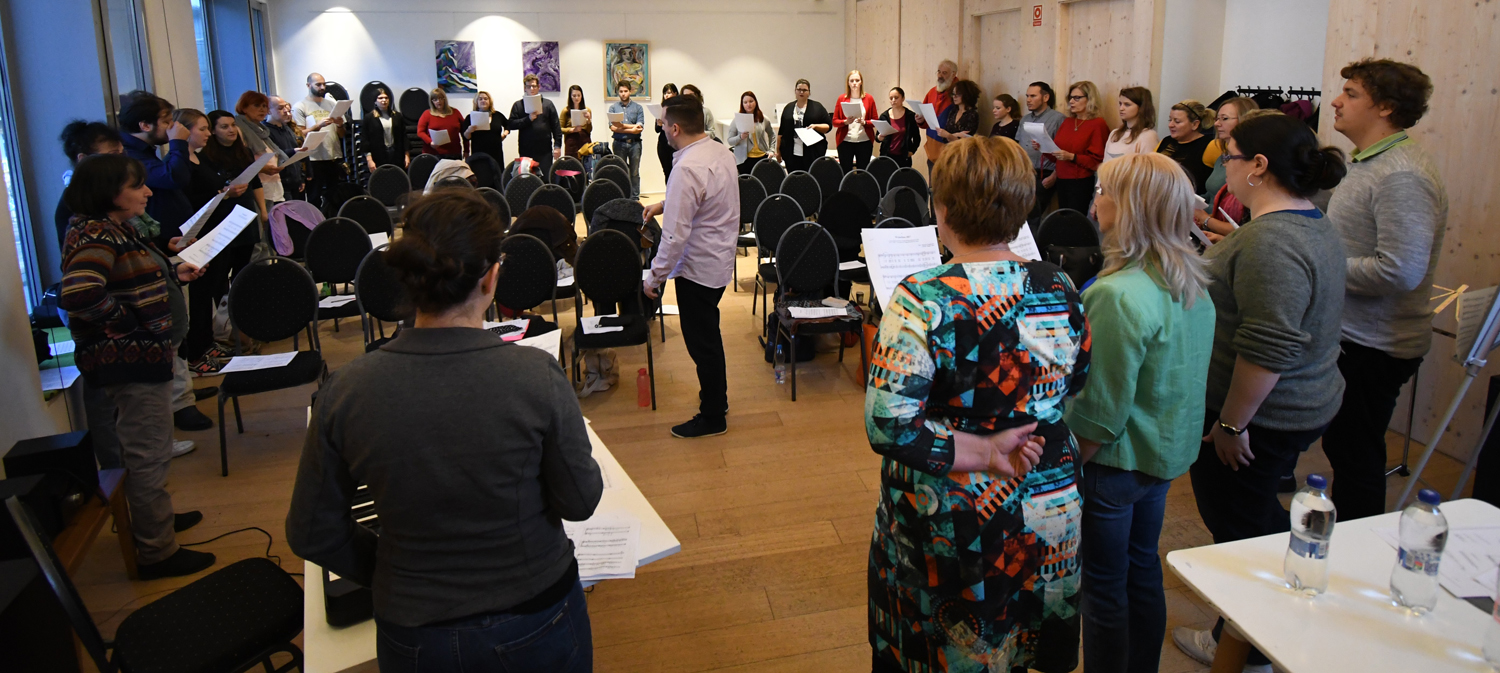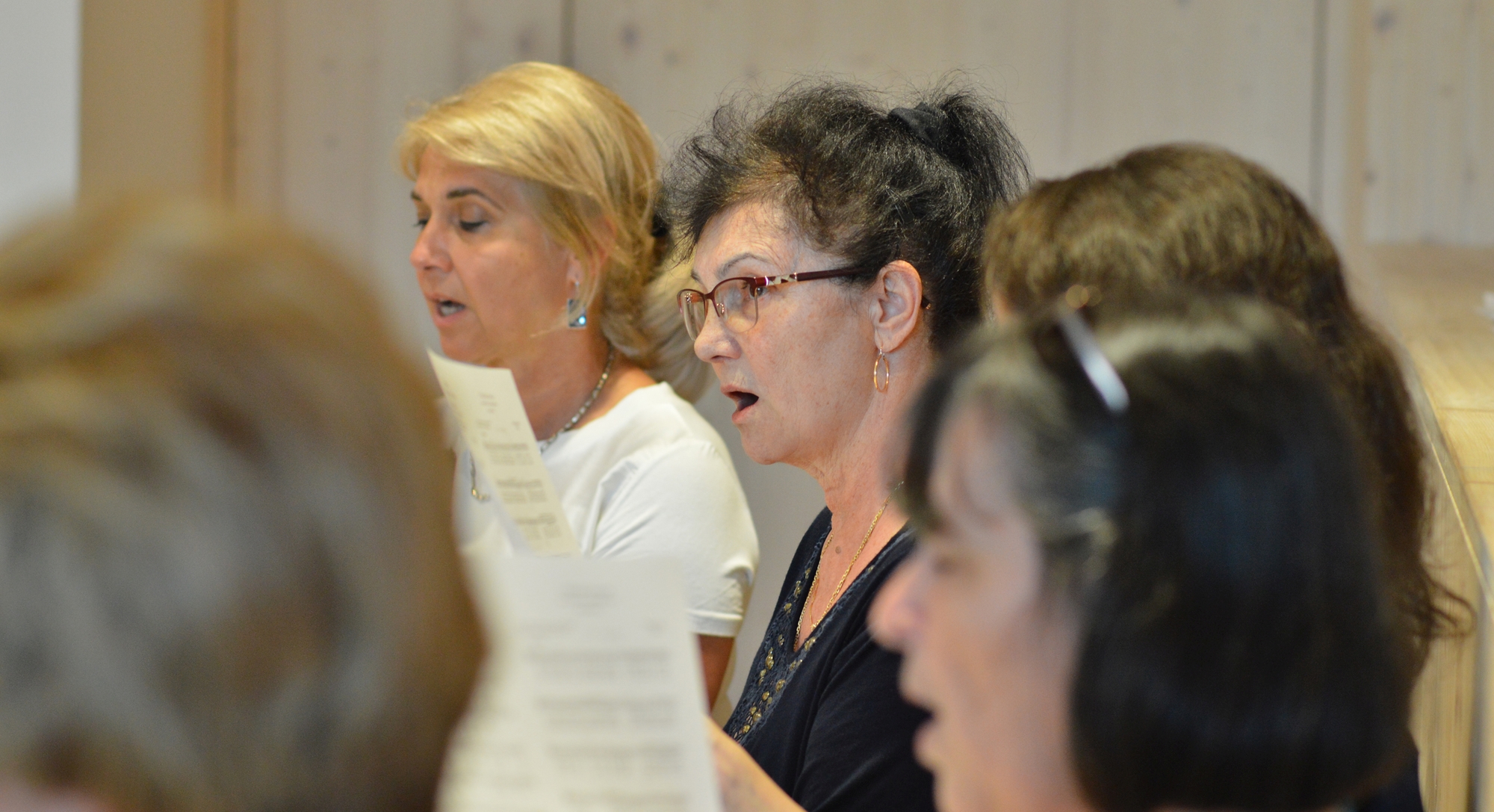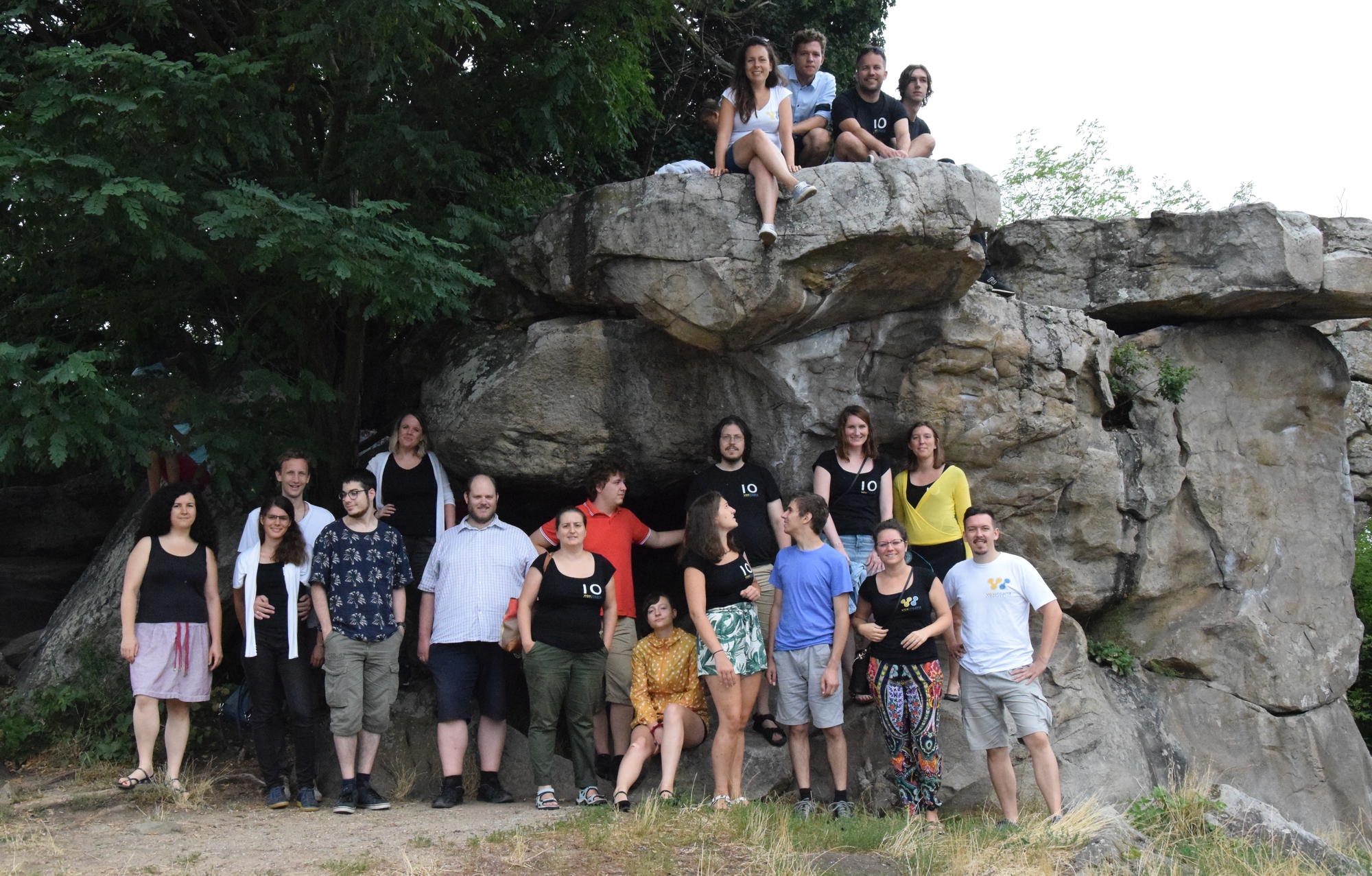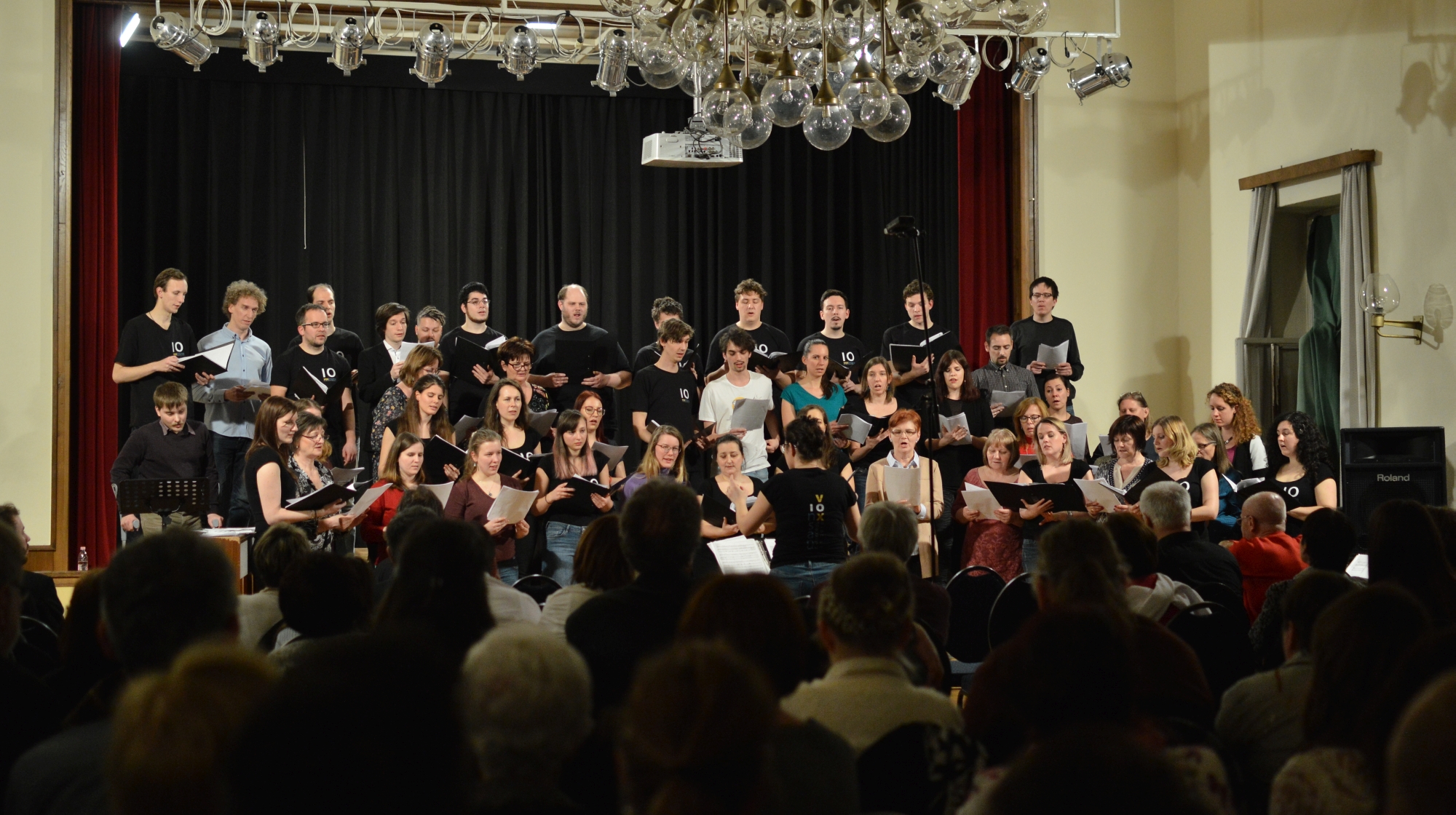
2020. 06 26. | blog, kottastrategia
[vc_row css=”.vc_custom_1575467086802{padding-top: 60px !important;}”][vc_column][vc_single_image image=”6734″][/vc_column][/vc_row][vc_row][vc_column][vc_column_text]
MusicStrategy: an experiment that is not primarily solfege
[/vc_column_text][vc_column_text]Written by: Csaba Tőri
June 26, 2020[/vc_column_text][vc_column_text]Let me start by quoting the most common question asked by almost all my inquiring acquaintances: “Now isn’t this just solfege?”
I thought it would be worthwhile to dedicate an article to illuminate from three perspectives how the MusicStrategy differs from a classic solfege class.
I will quickly point out that it naturally contains elements of solfege, and even elements of music theory – if I look at its professional side, I have taken especially a lot of advantage of working as a solfege teacher while constructing it.
At the same time, the goal was to approach the topic from a new perspective: to finally come up with a training that focuses on the knowledge that an amateur musician, let be it a choir singer or an instrumental player, really needs.
So, the first point of view is: what do we really use regularly in our daily tasks? (And how can these be well separated into levels?)
Our goal is to really teach what our students want to use later – and all this so that they can experience spectacular development quickly, within only 2-3 months. Therefore, I have been looking for solutions for the typical problems that have arisen over the last 10-12 years, to prevent being too dry and unpredictable for any amateur.
Courses at each level consist of 10 occasions, and the course titles exactly symbolize the level they can achieve. We explicitly include in the syllabus that the abstraction abilities of the adult age group are much better than those of the children – that is, it is also much easier to achieve that, contrary to beliefs, it does not take more than 2-3 months to reach an assessable level of knowledge.
The other thing that we also implement in it that someone regularly plays music on another area too, he or she can practice certain elements with his or her group even during the rehearsals.
No prior knowledge is required for the Intro groups, and the tasks are arranged in such a way that no complicated skills are required – at the same time, by the end of the 10 weeks together, there is a stable orientation between tones, major rhythms and easier intervals.
At the end of the Overview Groups, I sincerely believe that you, in case you review the intermediate tasks (up to 40-50 minutes per week), will learn all the information that an amateur musician encounters with. So far, we also read sheet music in a relatively stable way – even with slightly modified sounds – and the independent knowledge is emphasized: how to adjust among complex tones, complex melodies.
The next two levels, the Getting Deeper and Almost Professionals courses, are for those who want to learn more, deeper and more exciting – and they would have had a chance to do so at most if they had been approved at the conservatory long time ago. We are working here to launch the team in the direction of a much deeper understanding during the ten sessions.
The second point of view already comes as a consequence of this: The time that can be taken.
I regularly hear that as an adult, many people do not get into learning to read music, because they do not have time for it. Or because they have heard enough times about that how dry and boring solfege is. And the worst part is that I have never understood why it is so dry for many. I had a teacher who ran a lot of good games – and although we spent a lot of time with this in class or over the years, but mainly because we had the opportunity and time as a child – and playing music together developed us in other issues as well.
So, our goal is to give a real leap improvement in 10 weeks, dedicating 90-100 minutes a week – and it is good to see that in the groups we’ve already achieved this, we’ve done quite well.
Finally: the quality of understanding.
As a child, one’s way of thinking works completely differently, as we learn to write, count, draw – even sing, and build friendships at the same time. As adults, however, we are already familiar with interconnected systems, we see structures that a child does not necessarily need to know yet, much easier.
Therefore, the whole training can be reversed: many times we get to the elements from the whole, as almost everyone has more or less an experience of what the points in question are – and this allows us to present the full chord and melodic thinking based on these topics – always adapted to the difficulty requirements of the group.
The first element of the experiment is over: what has been a strong dilemma for me so far, I can see now that it has already worked for a couple of people – in 10 weeks they were built in a lot of contexts that I sometimes didn’t even hope for. Of course, every team will be different – that is why I am happy, because every process will be a new challenge for me too.
However, I am now reassured and I would like as many people as possible to know: it is not really “just” solfege – and I feel we have managed to come up with a method for that I have longed for ages: a predictable, just 2-3 months long, really efficient course you don’t have to spend an incredible amount of time, yet whoever comes with us will leave with stable knowledge.
If you feel like, you can read about it more:[/vc_column_text][vntd_button label=”MusicStrategy” color=”accent” url=”url:https%3A%2F%2Fimpulzusmusic.com%2Fen%2Fmusicstrategy%2F|||”][/vc_column][/vc_row]

2019. 12 4. | blog
[vc_row css=”.vc_custom_1575467086802{padding-top: 60px !important;}”][vc_column][vc_single_image image=”4609″][/vc_column][/vc_row][vc_row][vc_column][vc_column_text]
József Nemes visited us
[/vc_column_text][vc_column_text]Written by Csaba Tőri
4 December 2019[/vc_column_text][vc_column_text]We got richer with a wonderful experience last weekend :)
At the end of November ImPulzus hosted József Nemes, founder and leader of the Lautitia choir family in Debrecen.
József came with a bunch of new pieces unknown to all of us – even most of the authors were unknown for us. During the morning he told how everything we know today as Lautitia was built up – and in an amazing mood he even practiced with the 35 people gathered around for this occasion.
In the afternoon, he overcame the post-lunch digestion with incredible energy over and over again, we were amazed with how many ideas he was able to keep the team in working status.
It’s great to see how human and human-scale a community of this size can be – where the chorus is built primarily out of enthusiasm, volunteering, and responsibility for one another – and of course with tremendous professionalism.
It is fantastic that the consistent application of our principles leads to results: without being exhaustive, József mentioned among his most important principles that a choir member should never be anxious at a rehearsal, should always get enough help for technical and emotional realization, and that community power is paramount motivation for continuous work.
Dear József, thank you for coming – we hope to see you again soon :)[/vc_column_text][/vc_column][/vc_row]

2019. 10 8. | blog, ChoralVocalTraining, korushangkepzes
[vc_row css=”.vc_custom_1570540866050{padding-top: 60px !important;}”][vc_column][vc_single_image image=”4272″][/vc_column][/vc_row][vc_row][vc_column][vc_column_text]
Why choir vocal training?
[/vc_column_text][vc_column_text]Written by Csaba Tőri
8 October 2019[/vc_column_text][vc_column_text]I remember, it was a big task to find the right name. In retrospect, it is surprising how many things the name wants to refer to – and how many things it is trying to draw attention to.
We received many comments in the first few weeks: “Such a thing does not exist,” “Who are they who think that a choir should sing differently?”, “If it’s only for choirs, then it’s not right for the individual who wants to learn to sing,” etc. I started thinking about it.
At first, I began to believe it, because practicably the human voice is one and indivisible, its characteristics are given – one cannot really distinguish methods in this.
The confirmation
What finally convinced me the most was when a few of our students completed the 10-week-training and indicated that they would be happy to continue. We had to think about the direction we should develop them further.
Perhaps the most important thing is that we believe in it: everyone will learn as much as they like. It is an illusion that because the teacher’s motivating them, you’ll reach a higher level then you’ve expected.
That is why we offer 10-week courses – ending with a meaningful conclusion: we have discussed, practiced together, the tools that will guide us in the long run – in most cases, they prevent the development of bad inclusions or help to overcome the inconveniences.
Never must!
The basic principle of all ImPulse programs is that we want to overcome even the appearance of obligation. Simply because it kills motivation. It does not take months or years, a few hours are enough: what you have to do is instantly discouraged, while looking at the same thing as an option – where you get to decide to do it or not – gives you a much greater sense of accomplishment.
However, since our training lacks the formality of what we need to do officially, we somehow want to make sure that there is a purpose in our learning, for what we work together.[/vc_column_text][vc_column_text css=”.vc_custom_1578309001097{margin-top: 40px !important;margin-bottom: 40px !important;margin-left: 30px !important;border-left-width: 3px !important;padding-left: 30px !important;border-left-color: #fe4c3f !important;border-left-style: solid !important;}”]There is a famous experiment in which researchers went to some elementary schools to see what decides which child will be a successful, great person. To do this, they completed a test with each of the children and took the tests for evaluation. When they returned the told the results to the teachers and who are the kids to pay attention to more – because they will become great people.
What’s interesting about the experiment, though, is that they didn’t even look at the tests, they randomly selected the kids and named them as the best of the class – which included presumably better and worse students.
A few years later, in the second phase of the experiment, they looked at how much the “promising” and “less promising” children had changed from the previous visit. Perhaps unsurprisingly, it turned out that children, who were looked at as kids with a great future and many opportunities, outnumbered the development of the “others.”
We didn’t know exactly how different their upbringing was, but one thing was certain: the ones who were trusted by the teachers developed much faster than the ones who weren’t. However, the test itself had no influence on what to think of its filler.[/vc_column_text][vc_column_text]The role of the goal
One of the most important tools of pedagogy is positive suggestion. If we set a goal together and communicate to the student that we believe in the goal, then he / she will believe in it.
If there is no common goal, only the desire to sing, the result is much slower. (Just think, what if we didn’t tell the GPS where we wanted to go, just to go. How much less of a chance would be of us returning home?)
It’s long a difficult for sure
By precisely defining your goal and breaking it down into small steps, you can achieve much less time to reach each level. Many people think that it takes a long time – or a lot of work – to learn to sing.
Of course, to some extent this is also true: climbing also requires time. At the same time, not everyone desires the heights of the Mount Everest, personally I climb Mount-John the most. When it comes to singing techniques, everyone expects that if one learns to sing, he / she will do it “normally” until he / she becomes a “normal” singer.
There are two problems with this: many do not have the courage to start, and if they start, when they necessarily quit (since not everyone can be a singer, it’d be terrible), the initial goal is often not achieved yet, so the person is disappointed. And what was once one of the most off-putting, enthusiastic goals of the person’s life was no longer such an experience.
Being an amateur is liberating
We have many concerts behind us, many students in the choir who’ve had great experiences and given to others. The trick is simply that there was a goal that motivated us and then, after reaching that goal, we left with satisfaction: it was worth doing it. No one would have thought that 3 men who did little or nothing of classical singing before, could sing the famous sculpture scene of Don Giovanni. But they wanted to, and so they learned – certainly not perfect, but with a long applause.
So, as an amateur you don’t have to meet professional standards individually – yet the performance can be amazingly high. On one hand, because the credibility and the intention will come through the performance and on the other hand, because a well-set goal can be achieved in the foreseeable future.
What is less, what is more?
It matters a lot to know how the thinking of a non- professional person works. We don’t talk about a lot of singing issues, but there are ways to bring them along – bypass.[/vc_column_text][vc_column_text css=”.vc_custom_1578309159599{margin-top: 40px !important;margin-bottom: 40px !important;margin-left: 30px !important;border-left-width: 3px !important;padding-left: 30px !important;border-left-color: #fe4c3f !important;border-left-style: solid !important;}”]Singing is, after all, a business where much depends on imagination. Mostly because we use a lot of muscles that cannot be moved voluntarily – they can be triggered by imagination, emotion, or other voluntary muscles.[/vc_column_text][vc_column_text]Many times, one of these 10-week-courses is enough to pass on a lot of knowledge and create initial success experiences. Practicing is the decision of the individual: finding a new purpose, looking for a music community where the person can develop his/herself, practicing individually – whatever the person really likes.
Can someone be a soloist?
Experience has shown that up to 60% of those who have studied with us have been able to play solo roles with certainty. Most of the time, the audience was impressed, and they returned home with sincere satisfaction.
Of course, it takes more than a few years to get someone to the Hungarian State Opera House: a few years and better and better teachers who know that part of the journey.
However, anyone who wants to get started, or has had experience for several years, and is considering taking the topic seriously, we are happy to help and give you two more bonus points: we’ll help you discuss the purpose of the first period, and then give you a place in your life where you can come back anytime for help – or even where you can enjoy the next few years. Even if you are not perfect right away :)
Take it into consideration what we can do to help – you can find a solution here:
For those with quick questions
For those with long-term vision[/vc_column_text][/vc_column][/vc_row]

2019. 09 10. | blog
[vc_row css=”.vc_custom_1568110462446{padding-top: 60px !important;}”][vc_column][vc_single_image image=”4198″][/vc_column][/vc_row][vc_row][vc_column][vc_column_text]
6+1 reasons why to start singing tomorrow!
[/vc_column_text][vc_column_text]Written by Csaba Tőri
10 September 2019[/vc_column_text][vc_column_text]
- You will have new friends for tomorrow, who will help you immediately to find out why you haven’t had them before.
- You’ll get new goals right away – your conductor will give you plenty of ideas on how to spend the rest of your free time.
- Some of your friends will be proud of you in a month – they’ll hear you out of the choir at each concert, even when you don’t have the courage to sing, because you haven’t learned the pieces yet.
- The other part of your friends will be surprised to see that in two months how much happier and louder you became.
- New people, new situations: even in your relationship life surprises may happen within 3-4 months – whether you live alone or in marriage
- You can tell someone every week of the next semester, what you’ve been up to and if you have sung before
+1. Starting tomorrow you can be a part of a class again. With all the fun of it: you can fight together, take part in rumours and intrigue, and go on a class trip at least once a year.
If beyond the mentioned ones you even love to sing, you’ll never regret it. :)
That’s why we’re launching these initiatives (click on the link!):
https://www.facebook.com/events/1046746085716680[/vc_column_text][/vc_column][/vc_row]

2019. 03 27. | education
[vc_row css=”.vc_custom_1553677970643{padding-top: 60px !important;}”][vc_column][vc_single_image image=”4154″][/vc_column][/vc_row][vc_row][vc_column][vc_column_text]
Life in the Ivory tower – II.
[/vc_column_text][vc_column_text]Written by Csaba Tőri
27 March 2019[/vc_column_text][vc_column_text](First part of this article: Life in the ivory tower? – I.)
However in the 21st century there’s a distance between people, because of the technology and urbanization developments, we still walk by hundreds of people per day. Who knows how many Kossuth-award winning academic we’re passing by a day without knowing their incredible work. And if is true, we can’t even decide how much value they create for the world if somewhen the antidote to cancer will be discovered.
People working in the cultural industry has been constantly drawn up for ages: it’s necessary to be open with people and involve general public. However sometimes when curious people come in they are judged immediately for not knowing anything about high art. If not verbally, the works themselves address such a narrow audience that they implicitly convey this value-judgment. And the ivory tower gets its revenge: though there were some amazing results in very high quality, but still not many people know about these, so they can’t really appreciate it.
That’s why teaching is an amazing opportunity: if the school provides a wide perspective, the process starts and becomes self-stimulating. Those who’ve learnt arts, probably will never turn away from it. But those who didn’t get this experience at school, are still able to get this knowledge, with the help of the professionals.
That is why many artists get huge amount of money even though, people think (often rightly) they don’t add much value to the world.
There’s a value that is conveyed better way than anything else: music and literature belongs to everyone. Though they don’t reach their audience the same way as the greatest artist, they find a way to spread their work. By commercials and marketing.
However, I think it’s important to express my belief: I think there’s a balance between the two types. As symphonic bands are giving numerous movie-music-concerts these days, they often show their audiences that the movie world is not that far from Wagner or Beethoven. Those who grow up on movies can also start getting to know this world and can make just as good discoveries. After a while those who go to concerts will eventually start to enjoy listening to Bach or Bartok more than before.
What it is, if not an adult education concept with a very positive purpose: for everyone to develop in the area that we consider important. It’s wonderful to see how many people come to their first Carmina-Burana concert so that later on, they could even feel the value of Psalmus Hungaricus through the Beethoven Symphonies.
What I’m really sad about is that the viewpoint of the ivory tower, guided by a sense of goodwill and a desire to preserve values, when lighter genres appear (for example, fictions can make people bookworms), we plant a sense of guilt into the students, which then leads to a deepening of distance. As a consequence, they won’t be able to provide values which will be loved by many, and they won’t have enough connection with everyday people, so there will be no one to ask for the true value of their knowledge. Moreover, it becomes a tradition and will be passed on through generations.
If it could be possible to launch big changes in this world, it would be worth to have two pillars: maximalism at art and at the value creation. Creating joy in a language that the person understands is also a value, and always in a way that leads him/her a little bit forward. I don’t like the kind of joy creation that leads the listener towards lameness but playing and singing movie-music – processing a cartoon hit does not belong here: it can create huge value at a high level.
And then the previously analysed financial aim will be born easier: ask for the price of the value we give. It’s good for everybody: the artist/doctor/teacher will continue to do what they love and dedicated to in the coming decades, won’t stop and go to the supermarket store – just to support his/her family.
All in all, the one who pays the value of what he/she uses, gives him/her the authority to dare to research, teach and try next time: there will be someone to do all these for, next time as well.[/vc_column_text][/vc_column][/vc_row]






Recent Comments